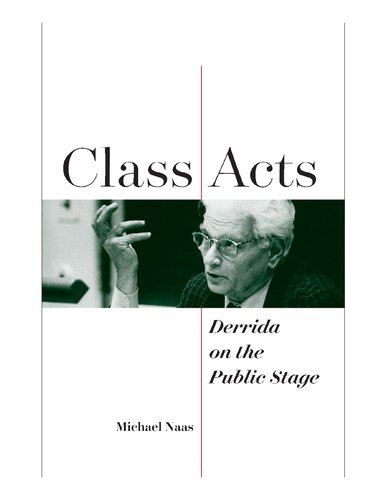

Most ebook files are in PDF format, so you can easily read them using various software such as Foxit Reader or directly on the Google Chrome browser.
Some ebook files are released by publishers in other formats such as .awz, .mobi, .epub, .fb2, etc. You may need to install specific software to read these formats on mobile/PC, such as Calibre.
Please read the tutorial at this link. https://ebooknice.com/page/post?id=faq
We offer FREE conversion to the popular formats you request; however, this may take some time. Therefore, right after payment, please email us, and we will try to provide the service as quickly as possible.
For some exceptional file formats or broken links (if any), please refrain from opening any disputes. Instead, email us first, and we will try to assist within a maximum of 6 hours.
EbookNice Team

Status:
Available4.7
6 reviewsClass Acts examines two often neglected aspects of Jacques Derrida’s work as a philosopher, his public presentations at lectures and conferences and his teaching, along with the question of the “speech act” that links them. What, Michael Naas asks, is one doing when one speaks in public in these ways?
The book follows Derrida’s itinerary with regard to speech act theory across three public lectures, from 1971 to 1997, all given, for reasons the book seeks to explain, in Montreal. In these lectures, Derrida elaborated his critique of J. L. Austin and his own subsequent redefinition of speech act theory. The book then gives an overview of Derrida’s teaching career and his famous “seminar” presentations, along with his own explicit reflections on pedagogy and educational institutions beginning in the mid-1970s. Naas then shows through a reading of three recently published seminars―on life death, theory and practice, and forgiveness―just how Derrida the teacher interrogated and deployed speech act theory in his seminars. Whether in a conference hall or a classroom, Naas demonstrates, Derrida was always interested in the way spoken or written words might do more than simply communicate some meaning or intent but might give rise to something like an event. Class Acts bears witness to the possibility of such events in Derrida’s work as a pedagogue and a public intellectual.